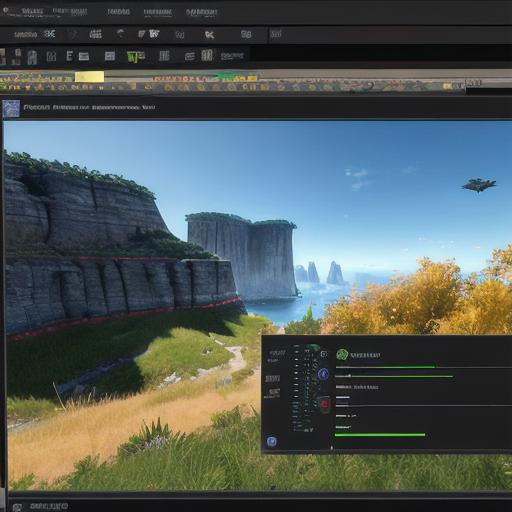The technical skills required for game development and software development are similar, as both fields require knowledge of programming languages such as C++, Java, and Python. However, game development requires a deeper understanding of graphics programming and 3D modeling, while software development focuses more on database management and system administration. Additionally, game development often involves the use of specialized tools and engines, such as Unity or Unreal Engine, which require a different set of technical skills than traditional software development.
Creativity
Game development is much more creative than software development. Game developers must come up with new and innovative ideas to keep players engaged and interested in their games. This requires a strong understanding of storytelling, character design, and level creation. On the other hand, software development focuses on developing solutions for specific problems or needs. While there is still room for creativity in software development, the primary goal is to solve a problem or meet a specific need.
Collaboration
Both game development and software development require collaboration between team members. However, game development requires more collaboration than software development, as game developers must work closely with artists, designers, and producers to create a cohesive gaming experience. This requires strong communication skills, the ability to work well in a team, and a willingness to compromise and negotiate. Software development, while still requiring collaboration, may only require working with other developers and project managers.
Market Demand
Software development is in high demand due to the ever-growing number of businesses and organizations that require software solutions. Game development, while still in demand, is not as lucrative as software development. This is because game development requires a significant upfront investment, and there is no guarantee that a game will be successful. Additionally, the gaming industry is highly competitive, with new games being released constantly. This can make it difficult for game developers to establish themselves in the market.
Case Studies and Personal Experiences
To gain a better understanding of the differences between game development and software development, it is helpful to look at real-life examples and personal experiences.
Game Development Example: Unity
Unity is a popular game engine that allows developers to create 2D and 3D games for various platforms. One of the key benefits of using Unity is its ease of use and accessibility. However, creating a successful game in Unity requires a significant amount of creativity and technical expertise. Developers must also be willing to continuously learn and adapt to new technologies and trends in the gaming industry. For example, a game developer who specializes in creating puzzle games using Unity may need to learn new programming languages or tools to create a more immersive experience for players.
Software Development Example: Salesforce
Salesforce is a cloud-based software platform that provides businesses with tools for customer relationship management, sales automation, and more. One of the key benefits of using Salesforce is its scalability and customization options. However, developing a successful software solution in Salesforce requires a deep understanding of the platform’s architecture and programming languages such as Apex and Visualforce. For example, a software developer who specializes in creating custom reports for Salesforce may need to learn new database management techniques or data analysis tools to create more effective reports.
Personal Experience: Game Developer Turned Software Developer
One Reddit user who made the transition from game development to software development shared their experience, stating that while they enjoyed the creative aspect of game development, they found software development to be more rewarding in terms of problem-solving and contributing to the greater good. They also noted that the demand for software developers is higher than for game developers, making it a more stable career path. For example, a game developer who transitioned to software development may find that their technical skills are highly valued in the industry and may have more opportunities for advancement.
Research and Experiments
To further explore the differences between game development and software development, we can look at research and experiments conducted in both fields.

Game Development Research: Player Engagement
One study conducted by researchers at the University of California, Irvine, found that players are more engaged when they have a sense of autonomy, competence, and relatedness in a game.
